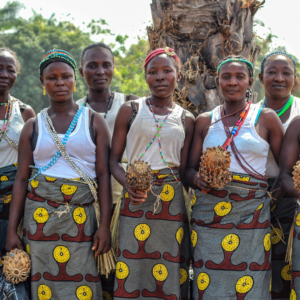Burkina Faso, Mali, and Niger have announced their intention to withdraw from the International Criminal Court (ICC), a move that Human Rights Watch warns will jeopardize access to justice for victims of atrocity crimes and put civilians at greater risk. The announcement, made by the military leaders of the three Sahel countries on September 22, 2025, comes amid ongoing armed conflicts with Islamist insurgent groups. Both government and insurgent forces have committed war crimes and possible crimes against humanity, while victims have struggled to obtain redress through national and regional courts.
Human Rights Watch emphasizes that the ICC serves as a court of last resort, providing victims with a critical avenue for justice when domestic systems fail. Under the Rome Statute, countries can formally withdraw by notifying the United Nations secretary-general, with the withdrawal taking effect one year later, during which time the countries remain bound by ICC obligations.
For over a decade, the Sahel region has faced insurgencies from Al Qaeda- and Islamic State-linked groups, resulting in widespread atrocities including killings, attacks on schools and humanitarian convoys, and sieges of towns. The militaries of Burkina Faso, Mali, and Niger, often aided by abusive militias and foreign mercenaries, have engaged in brutal counterinsurgency operations, causing mass displacement and unlawful detentions.
Since military coups in 2020, the three countries have restricted political opposition, media, and civic space, consolidating power without democratic elections. Authorities have failed to investigate serious violations of the laws of war, allowing impunity to flourish and emboldening perpetrators. In January 2025, the countries formally left the ECOWAS regional bloc, further limiting avenues for victims to seek justice.
The ICC, with 125 member countries, has investigated crimes in 17 situations globally, including Mali, where its intervention has checked impunity. Notable cases include the 2016 sentencing of Ahmad al-Faqi al-Mahdi for the destruction of historic sites in Timbuktu and the 2024 sentencing of Al-Hassan Ag Abdoul Aziz for war crimes and crimes against humanity. The ICC also issued a 2024 arrest warrant against Iyad Ag Ghaly for war crimes in northern Mali, though he remains at large.
The court faces threats from political actors seeking to obstruct justice. For example, the U.S. sanctioned ICC officials and organizations related to Palestinian investigations, while Russia issued arrest warrants against ICC personnel following a 2023 warrant for President Putin. Previous ICC members, Burundi and the Philippines, have also withdrawn, with the Philippines later transferring former President Rodrigo Duterte to the ICC in 2025 on charges of crimes against humanity.
Human Rights Watch warns that the withdrawal by Burkina Faso, Mali, and Niger undermines accountability and deprives people in the Sahel of essential human rights protections. The organization urges the African Union and ICC member states to press these countries to uphold justice, the rule of law, and remain part of the ICC.







